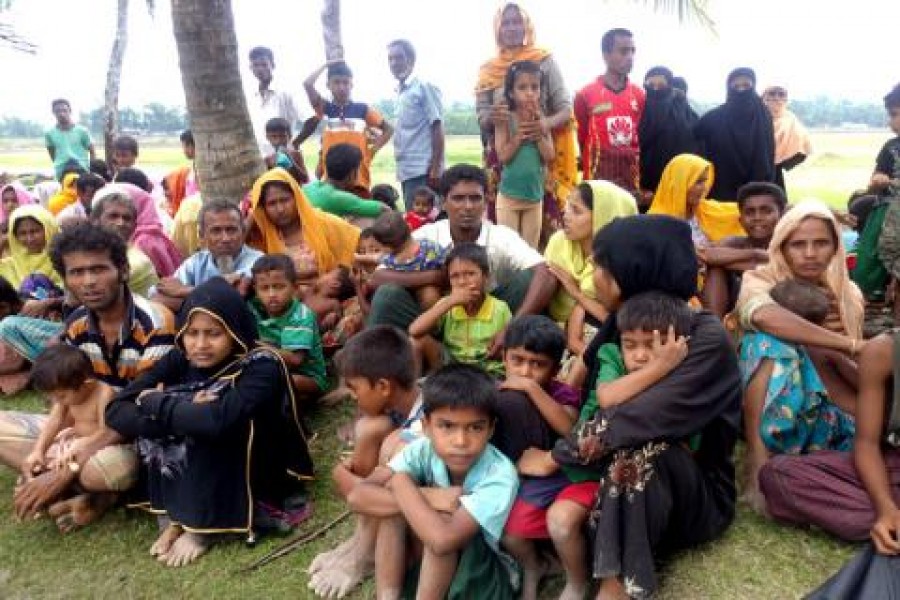IOM, the UN Migration Agency in Bangladesh today said that humanitarian assistance in Cox’s Bazar, Bangladesh must be scaled up urgently as tens of thousands of newly arrived Undocumented Myanmar Nationals (UMNs) continue to stream into the district’s makeshift settlements in search of help, said a press release.
IOM and partner agencies operating in the district, which borders Myanmar, have identified an immediate funding gap of $18 million over the next three months to allow lifesaving services to be scaled up to cope with the new arrivals. This appeal will be followed by a more comprehensive needs assessment and response plan.
Today (Wednesday), the IOM convened Inter Sector Coordination Group (ISCG) of humanitarian agencies working in Cox’s Bazar announced that an estimated 123,600 people have crossed into Bangladesh from Myanmar since the latest outbreak of violence on 25 August. (ISCG estimates are based on observations compiled by ISCG agencies and may be inaccurate. There is no formal registration of the new arrivals.)
Thousands of people are still arriving daily, looking for space to settle down in, and there are clear signs that more will cross before the situation stabilises.
Prior to the latest influx, IOM Bangladesh was coordinating humanitarian assistance to some 200,000 UMNs living in makeshift settlements in Cox’s Bazar.
Lifesaving services delivered by IOM and its partner agencies include clean water and sanitation, shelter, food security, health care, education, and psychosocial support for the most vulnerable individuals, many whom are suffering from acute mental trauma or are survivors of sexual violence.
“The new arrivals are putting immense strain on the existing support structures. These need to be immediately scaled up to ensure lives are not put at risk,” said Sarat Dash, IOM Bangladesh Chief of Mission.
“We are running out of space in the existing settlements and new arrivals are pitching camp wherever they can erect some plastic sheeting to protect themselves from the elements. They have very limited understanding of the available services. We need to urgently look at their shelter needs and make sure people have safe spaces in which to stay,” he added.
Most of the people crossing the border are women, children and the elderly, many of whom are vulnerable and lack the ability to take care of themselves.
Bangladesh already hosts an estimated 400,000 UMNs, most of whom are living in the greater Chittagong area, which is extremely vulnerable to external shocks, including cyclones.


